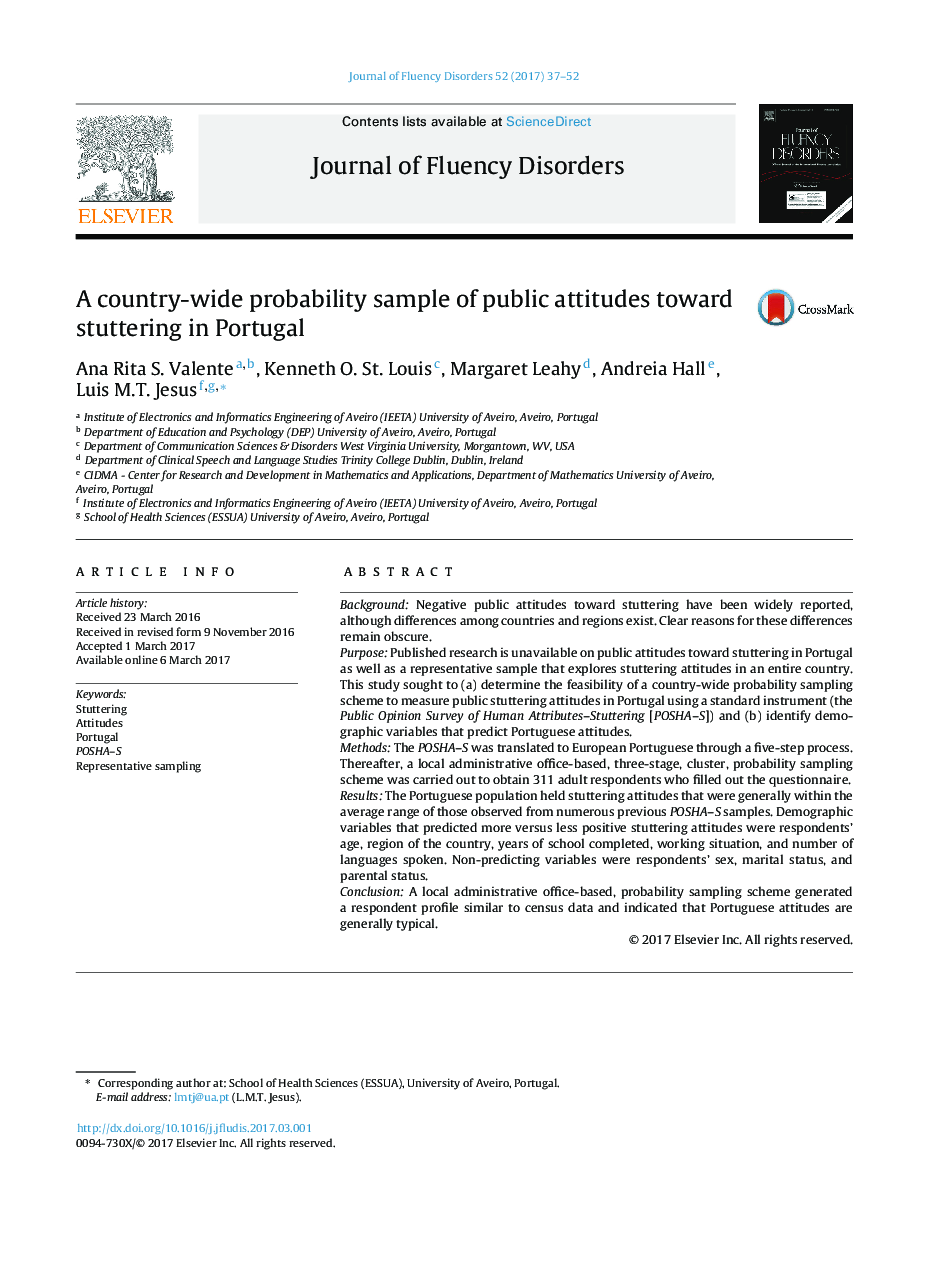| کد مقاله | کد نشریه | سال انتشار | مقاله انگلیسی | نسخه تمام متن |
|---|---|---|---|---|
| 5039153 | 1473138 | 2017 | 16 صفحه PDF | دانلود رایگان |
- Portuguese adults held mostly average POSHA-S attitudes toward stuttering.
- Like other samples worldwide, these attitudes reflected stereotypes and stigma.
- Age, region, education, work, and number of languages predicted stuttering attitudes.
- Sex, marital status, and parental status did not predict stuttering attitudes.
BackgroundNegative public attitudes toward stuttering have been widely reported, although differences among countries and regions exist. Clear reasons for these differences remain obscure.PurposePublished research is unavailable on public attitudes toward stuttering in Portugal as well as a representative sample that explores stuttering attitudes in an entire country. This study sought to (a) determine the feasibility of a country-wide probability sampling scheme to measure public stuttering attitudes in Portugal using a standard instrument (the Public Opinion Survey of Human Attributes-Stuttering [POSHA-S]) and (b) identify demographic variables that predict Portuguese attitudes.MethodsThe POSHA-S was translated to European Portuguese through a five-step process. Thereafter, a local administrative office-based, three-stage, cluster, probability sampling scheme was carried out to obtain 311 adult respondents who filled out the questionnaire.ResultsThe Portuguese population held stuttering attitudes that were generally within the average range of those observed from numerous previous POSHA-S samples. Demographic variables that predicted more versus less positive stuttering attitudes were respondents' age, region of the country, years of school completed, working situation, and number of languages spoken. Non-predicting variables were respondents' sex, marital status, and parental status.ConclusionA local administrative office-based, probability sampling scheme generated a respondent profile similar to census data and indicated that Portuguese attitudes are generally typical.
Journal: Journal of Fluency Disorders - Volume 52, June 2017, Pages 37-52
